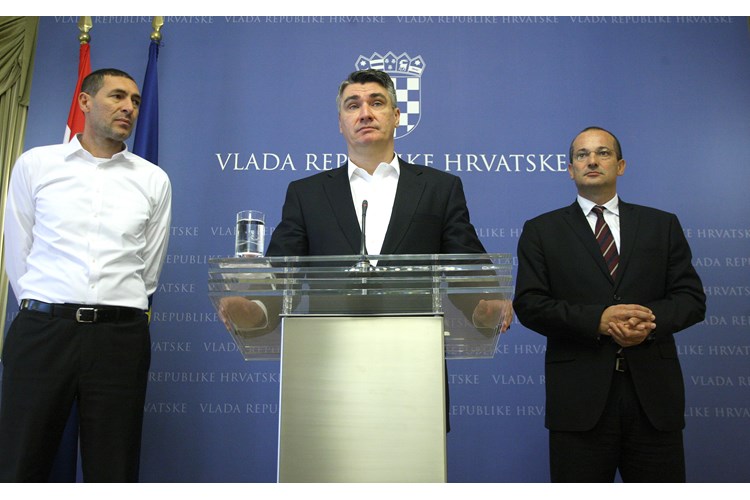Prime Minister Zoran Milanovic said on Friday that Croatia could no longer bear the burden of refugees from the Middle East, adding that new methods would be used as of today.
"Croatia cannot and will not take this burden any more, while others are looking away trying to pass the buck," Milanovic told a press conference. "Refugees are welcome in Croatia, they can pass through because their destination is Northern Europe. They can no longer be registered and accommodated, and we are switching to Plan B."
"People who are coming here will no longer be able to stay in Croatia, but we will give them water and food and will take care of them if they are ill," Milanovic said, adding that he could not be more specific about Plan B.
The prime minister started his press conference by thanking everyone for unselfishly helping the authorities in dealing with the refugee crisis, citing volunteers and civil servants. He stressed that this crisis was not a security threat to Croatia, but was creating problems. "Croatia has shown that it has a heart, both its authorities and its people, but we must remind our neighbours and the EU that we also have a brain and that we know where our interests and our security lie."
Milanovic said that no one can physically close the borders unless they build wire fences, which Croatia will not do. "Those calling for closing the borders should explain what they mean by it. Closing border crossings does not mean closing the borders," he said, adding that the daily influx of people into the country was incomparably higher than six months ago.
"Croatia has been preparing for this. Croatia is taking them in, but our capacity is small. We can't do it any more. Over 13,000 people have entered Croatia in two days and a small number of them have left. We can't control this and we can't accept them any more because they exceed our capacity," the PM said.
Milanovic said that it was not a solution for refugees to stay in Croatia and for Croatia to become what the EU calls "a hot spot". "In other words that means that Croatia would be a collection centre for refugees and migrants in Europe. That's what this term implies," he concluded.
(text and foto: HINA)
News |
Govori i izjave


